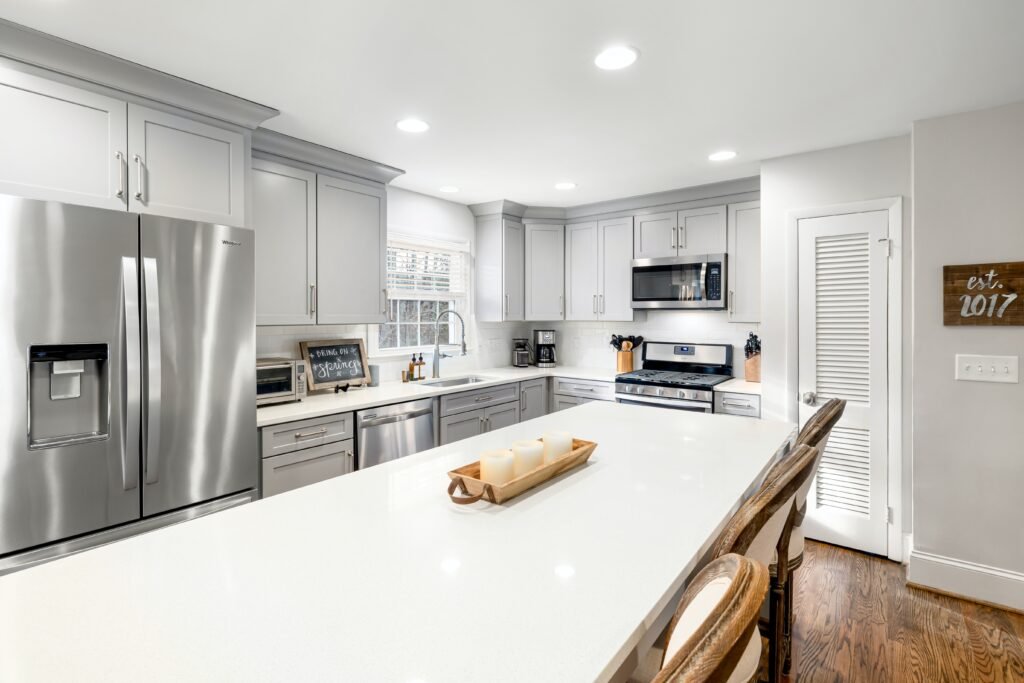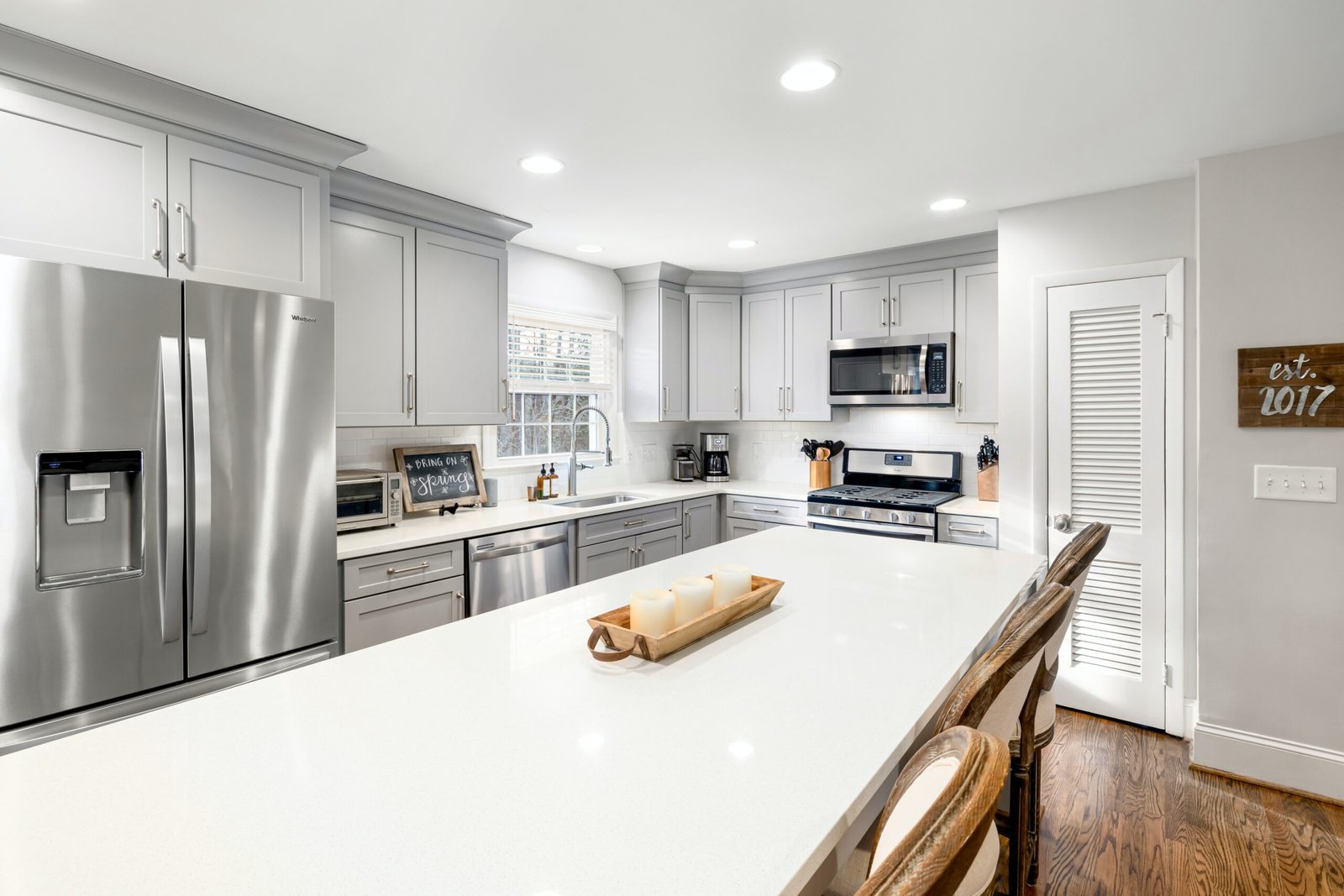Smart Home Appliances Are Now Covered Under Many Homeowners Insurance Policies.

Smart home appliances are gaining popularity as the technology becomes more affordable. They provide many benefits for homeowners including the ability to control appliances remotely, monitor energy usage, and adjust settings based on a schedule. In addition, smart home devices can save homeowners money by reducing the amount of time spent on routine household maintenance.
Smart home appliances are becoming more and more popular. If you have a smart home, you can control your home appliances with the touch of a button. It’s the next step in home automation. However, there is no insurance policy for these smart home appliances.
The Pros And Cons On Using Smart Home Appliances
As technology continues to evolve, smart home products are becoming increasingly more popular and affordable. Today, consumers can use these devices to control home appliances, thermostats and even doors. This guide will focus on the benefits and disadvantages of using smart home appliances.
For many years people have relied on home appliances to cook, clean, and perform other tasks around the house. Now a new breed of technology called smart home devices are taking the market by storm.
These devices allow users to control appliances via their smartphones, tablets, and computers. They use Wi-Fi or Bluetooth technology to connect to the user’s home network. For this reason, you should consider using the best smart home appliances to make your life easier.
What is Smart Home Appliances
Smart home appliances are the latest technology which allow you to control everything in your home. There are several types of smart appliances which are controlled by your smartphones. They are connected to the internet which allows you to control them from any device using an app.
The app will connect with the particular smart appliance so that you can use it from anywhere. There are many different types of appliances like door locks, lights, refrigerators, and air conditioners which are connected through the internet and can be controlled using your smartphone.
Smart Home Appliances are electronic products that are connected to the internet so that you can access and control them with a web browser on any device such as mobile phones or computers. The devices work independently to do tasks like turn on lights, heaters, appliances, etc.
Why You Need Smart Home Insurance
Home insurance can be one of the biggest financial investments you make in a lifetime, so it’s important to find out about your options. If you’re looking for a policy that can cover losses due to disasters like floods, fires, storms, earthquakes and vandalism, it’s worth considering Smart Home Insurance.
Smart Home Insurance covers you for the costs associated with replacing or repairing damage to your home when it is hit by a disaster, such as loss of possessions, the cost of replacing your home’s contents, or the loss of your home’s structural integrity.

What Homeowners Need To Know About Their Insurance
Most homeowners know they need insurance. And that’s why they call their agent about home insurance. But there are some things they don’t know, and the sooner they learn, the better off they will be. The most important information you need to know is that you should be careful when buying an insurance policy.
For instance, some homeowners don’t know they’re not covered for fires, water damage, explosions, hail, tornadoes, theft, etc., even though the policy lists those risks. And some homeowners don’t know that they must notify their agents right away in case of a loss, or when a covered peril becomes imminent.
What Will You Pay for Home Security?
Security is the number one concern for people living in urban areas. With the increased crime rate and the many break-ins taking place in our neighborhoods, homeowners need to be protected. Security experts say that in the last few years burglars have become more sophisticated, using more high tech tools to help them break into homes.
These tools include cameras and devices that send out an alarm when they detect motion in the house. Most consumers can choose from a wide variety of security services, including cable companies, wireless carriers, Internet service providers, phone companies, and even alarm monitoring services.
Is it Safe to Insure Your Smart Home Appliances?
In fact, the majority of U.S. homeowners have some form of water damage, be it flood, broken pipe, or a sprinkler head burst. It’s not uncommon for water damage to happen to any type of home appliance, but they can be costly to repair or replace.
Most people would prefer to spend their money on something else, and so most of them purchase insurance for these appliances to protect against this type of water damage. With all these items on the market it can be difficult to know which are reliable, and which are not.

Also Read This: Consumer Attorney’s Guide To Avoiding the Worst Financial Scams: New Update 2023
Benefits Of Home Smart Appliances
The home smart appliance is a technology that is designed to make your life easier and more enjoyable. There are many benefits to owning a home smart appliance, including the ability to control your home remotely.
You can also program your home smart appliance to work with other devices in your home. This makes it easier for you to control multiple devices at once. The home smart appliance can also save you money by reducing the amount of electricity you use.
One of the main advantages is that they can make life easier for people with disabilities. These appliances can be used to monitor the activities of people with disabilities and alert caregivers if someone is not doing what they are supposed to be doing.
Conclusion:
The most important part of any home insurance policy is liability coverage. This is what covers you in case someone is injured in your home. When it comes to home appliances and equipment, the standard homeowner policy does not cover this. Smart home appliances can save you money and help keep your home secure. You can use a connected thermostat and security system.
